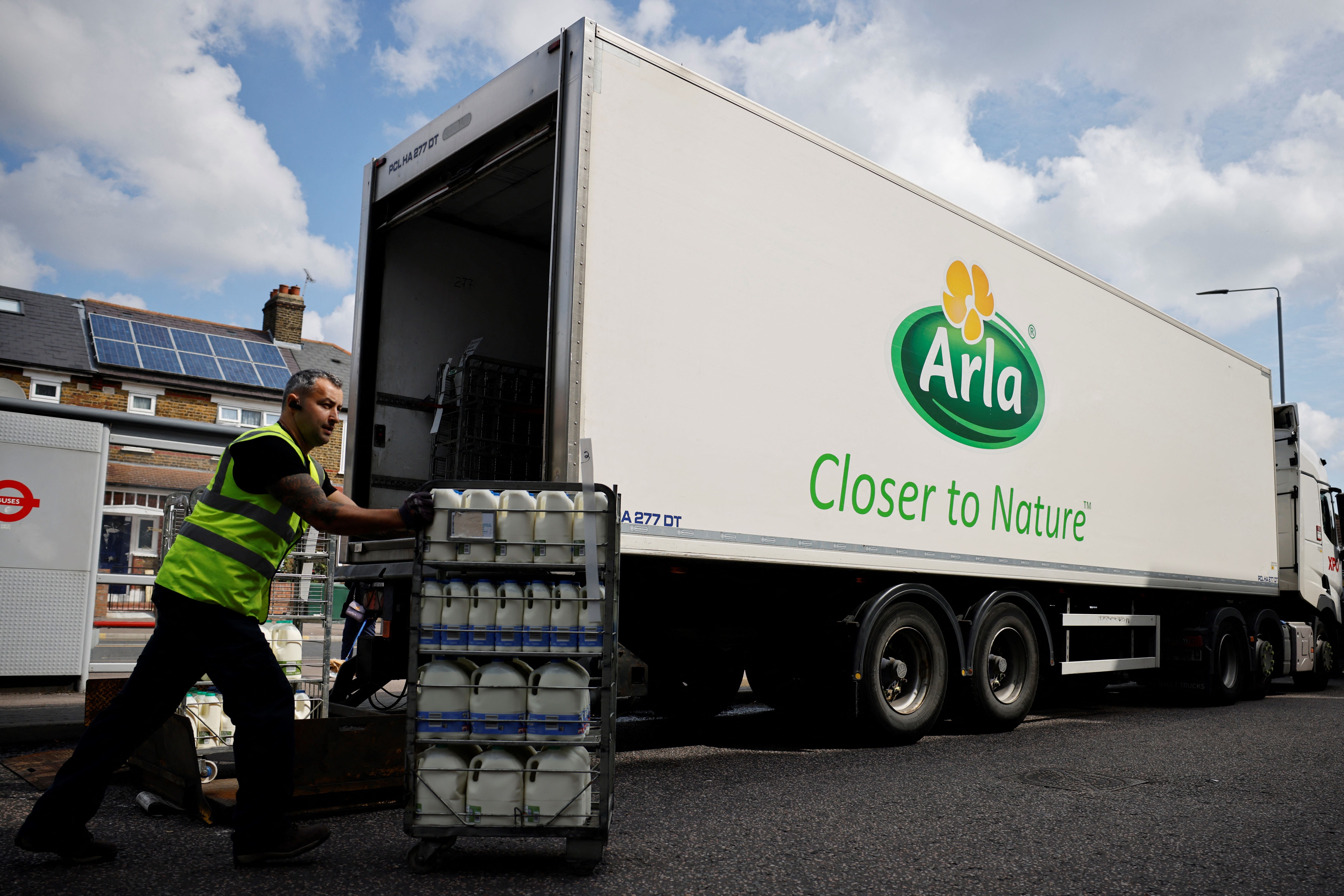UK’s largest dairy warns supermarkets face milk shortages unless farmers are paid more
Farmers are facing higher production costs and are struggling to keep up.

Your support helps us to tell the story
From reproductive rights to climate change to Big Tech, The Independent is on the ground when the story is developing. Whether it's investigating the financials of Elon Musk's pro-Trump PAC or producing our latest documentary, 'The A Word', which shines a light on the American women fighting for reproductive rights, we know how important it is to parse out the facts from the messaging.
At such a critical moment in US history, we need reporters on the ground. Your donation allows us to keep sending journalists to speak to both sides of the story.
The Independent is trusted by Americans across the entire political spectrum. And unlike many other quality news outlets, we choose not to lock Americans out of our reporting and analysis with paywalls. We believe quality journalism should be available to everyone, paid for by those who can afford it.
Your support makes all the difference.Milk supplies in the UK could start to dwindle as the cost of production is becoming increasingly expensive, the county’s largest dairy has warned.
Arla Foods said the costs are increasing at never before seen rates leading farmers struggling to cover expenses.
It is calling for higher pay for farmers to ensure they can keep the milk flowing.
“Because of the recent crisis, feed, fuel and fertiliser have rocketed and therefore cashflow on the farm is negative,” managing director Ash Amirahmadi said.
Over the past seven years, farmers have been producing more milk than called for, however, February saw them produce 2% less and March 4% less.
With the cost increasing by some 36%, Mr Amirahmadi told the BBC the most important thing to do was “put our arm around the farmers” and increase their pay to ensure they are able to continue with production.
This means securing a higher price from supermarkets to help recoup the costs.
The price of milk is 7% lower now than it was 10 years ago, though the price consumers pay does not add up to the same amount farmers receive to produce it.
Supermarkets have direct contracts with farmers based on their own cost of production models, but even these are failing to keep up with the increasing costs.
“Over the next five years we will have to make some tough decisions about where out milk goes to ensure farmers can cover their costs and continue to invest in reducing their on-farm emissions,” Mr Amirahmadi said.
With the global demand for dairy on the rise, Arla believes there is an opportunity for British farmers to export fresh milk for processing at its European sites to then be sold onto international markets - something which it is already trialling.
The prices paid to farmers abroad are 15% higher than farmers in this country receive, and Mr Amirahmadi hopes the arrangement will lead to a lift in the UK dairy market.
Join our commenting forum
Join thought-provoking conversations, follow other Independent readers and see their replies
Comments